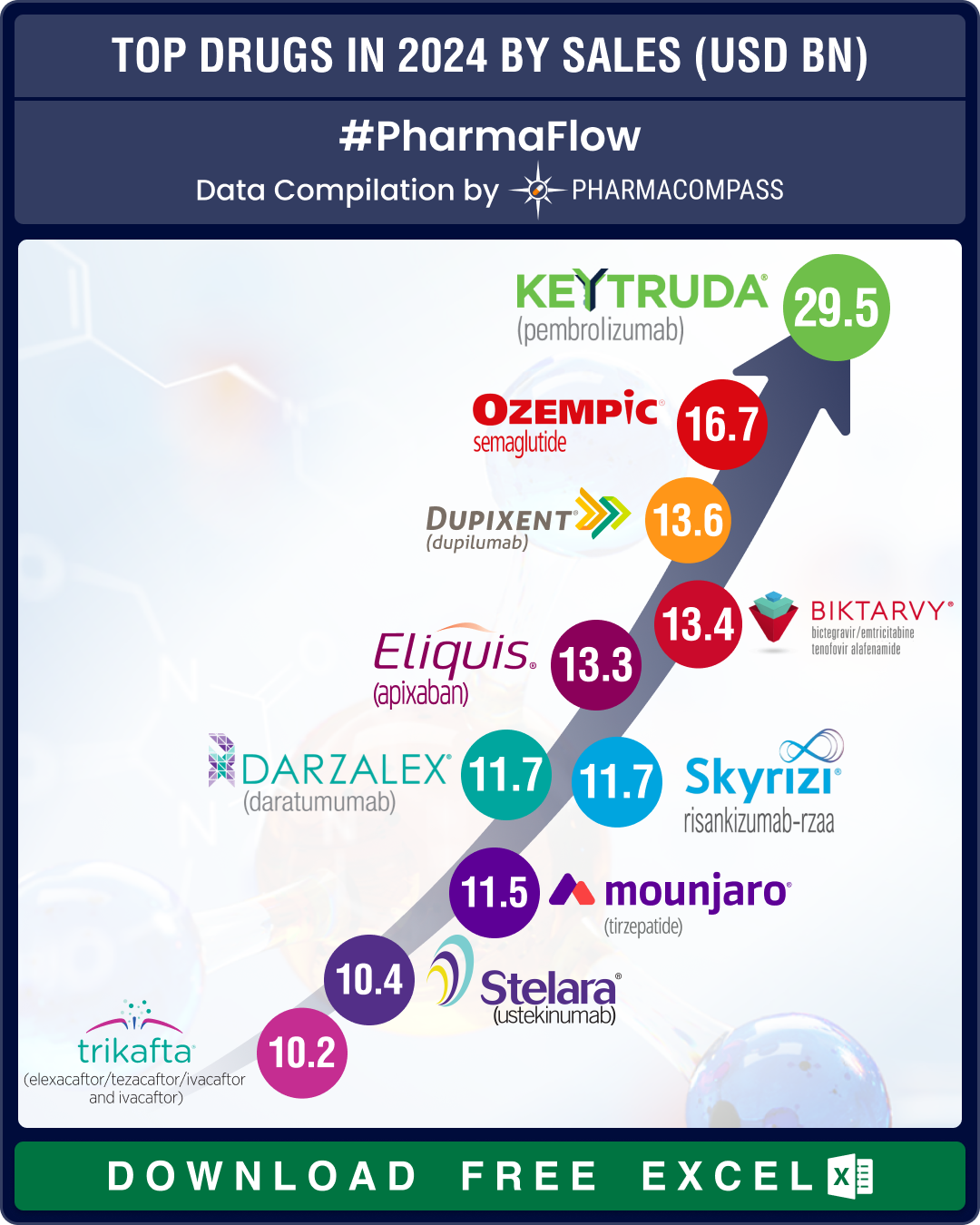
This week, Phispers brings you news about Teva, which finally found a CEO in Kare Schultz. Allergan transferred the patent of its best-selling eye drug Restasis to the Mohawk tribe in order to protect it from patent dispute. There was more news on EpiPen, as Pfizer received an FDA warning letter for Mylan’s flagship product. And, a leaked audio revealed how Insys lied to a patient who didn’t have cancer to sell a prescription opioid.
Teva nabs Lundbeck’s CEO to revive its fortunes; to pay over US$ 44 million
After months of bad news, this week there was finally some good news from the much-troubled Teva. The Israeli generic drug giant finally managed to get a new chief executive officer for itself, after Erez Vigodman’s resignation in February this year.
Teva poached Lundbeck’s Kare Schultz as its new CEO. Schultz, 56, will move to Israel and be based at Teva’s headquarters in Petach Tikva. In an SEC filing, Teva said Schultz is starting with a base pay of US$ 2 million. Along with several bonuses (including a signing bonus of US$ 20 million), his initial package adds up to over US $44 million. Schultz has 30 years of experience in global pharma business.
After the acquisition of Allergan’s generic business — Actavis — last year, Teva has been saddled with huge debts. And the key question before the new CEO is whether he will maintain Teva as both a generics and specialty drugmaker, or split it in two or get out of the highly competitive generics business.
During the last quarter (April to June), Teva posted revenues of US$ 5.7 billion, out of which US$ 3.1 billion came from generics and US$ 2.1 billion from its own branded drugs. About half the sales of its own medicines come from a blockbuster multiple sclerosis drug which is now facing competition from generics.
Pfizer
gets FDA warning letter for supplying faulty EpiPens to Mylan
The US Food and Drug Administration (FDA) has told Meridian Medical Technologies, a division of Pfizer that makes the EpiPen injector device (sold by Mylan NV), that serious component and product failures have been associated with patient deaths.
In a warning letter issued on September 5, the FDA said the Pfizer unit failed to adequately investigate problems at its manufacturing facility in Brentwood, Missouri. It also did not take appropriate corrective actions before an FDA inspection earlier this year.
Throughout last year, Meridian received hundreds of complaints that the EpiPen device, which is used to combat serious allergic reactions, failed to operate during life-threatening emergencies.
In March this year, tens of thousands of EpiPens were recalled worldwide after two reports of the shot failing to work in emergencies.
In a note to Stat News, Pfizer said: “Between 2015 and now, we have shipped more than 30 million EpiPen Auto-Injectors globally. It’s not unusual to receive product complaints, especially when the product is frequently administered by non-medically trained individuals.”
“We currently have no information to indicate that there was any causal connection between these product complaints and any patient deaths,” it added.
In a statement, Mylan said it is confident of the safety and efficacy of EpiPen products being produced at the Brentwood site.
According to the FDA warning letter, in April 2016, a customer complained that an EpiPen failed to activate. Though Meridian confirmed the problem, in June 2016 it decided the defect was infrequent. Moreover, between 2014 and 2017, Meridian received 171 devices from patients who complained their devices failed to activate even when they followed the instructions. But Meridian only examined some of the devices and told the FDA inspectors they could not examine the rest without “approval by management”.
The warning letter highlights that Meridian “failed to thoroughly investigate multiple serious component and product failures for your EpiPen products, including failures associated with patient deaths and severe illness. You also failed to expand the scope of your investigations into these serious and life-threatening failures or take appropriate corrective actions, until FDA's inspection.”
Allergan tries to protect eye drug by selling its patent
rights to Mohawk tribe
Allergan played an unusual gambit last week to protect its best-selling eye drug — Restasis — from a patent dispute. It did that by transferring the patent of the drug to the Saint Regis Mohawk Tribe, a Mohawk Indian reservation in Franklin County, New York, United States.
Under the deal, Allergan will pay the tribe US$ 13.75 million. In exchange, the tribe will claim sovereign immunity as grounds to dismiss a patent challenge through a unit of the United States Patent and Trademark Office. The tribe will lease the patents back to Allergan, and will receive US$ 15 million in annual royalties as long as the patents remain valid.
For the Mohawk tribe, the deal could generate a new revenue stream. Bob Bailey, Allergan’s chief legal officer told FiercePharma: “I have spent time with the chiefs and their primary motivation for doing this… is to diversify the stream of incomes that this tribe enjoys away from casinos and cigarettes, into longer term, more viable streams…”
If successful, the move will represent a new way for drug companies to circumvent the inter partes review, a procedure for challenging the validity of a United States patent before the United States Patent and Trademark Office.
The move sent ripples across the pharmaceutical industry. Surely, if this strategy pays off, there will be other drug companies following suit. Many observers ridiculed the company on social media by calling the deal unscrupulous and sure to bring more criticism to the industry. The tribe has reportedly also taken ownership of patents owned by a technology company.
Interestingly, last year, Allergan CEO Brent Saunders had won accolades for condemning predatory drug pricing by the likes of Martin Shkreli and emphasized the company’s commitment to research and development.
This week, in a Federal District Court in Marshall, Texas, Mylan challenged Allergan’s move. Netherland headquartered Mylan, in its court filing stated that Ireland headquartered Allergan is “attempting to misuse Native American sovereignty to shield invalid patents from cancellation.”
Biocon’s Malaysia facility gets EU nod; Dr Reddy’s gets six major observations
Biocon, India’s leading biopharmaceutical company, had some good news to share, after its recent setbacks related to its biosimilar program. Its insulin facility in Malaysia — Biocon Sdn Bhd — received an EU GMP compliance certificate from the HPRA (Ireland), the representative European inspection authority.
Biocon Malaysia is “one of Asia’s largest state-of-the-art integrated insulins manufacturing facilities, set up with an investment of about US$ 275 million, at the BioXcell Biotech Park in Johor, Malaysia,” Biocon said in a statement.
Dr Reddy’s Vizag plant: Indian pharma major Dr Reddy’s said its plant in Vishakapatnam (India) has been issued six major observations related to good manufacturing practices (GMP) by the regulatory authority of Germany — Regierung von Oberbayern.
In a statement issued to the Bombay Stock Exchange last week, the company said: “This is to inform you that on 7th September, 2017, the Regulatory Authority of Germany, concluded an audit for our formulations manufacturing facility in Duvvada, Vishakapatnam, with zero critical and six major observations.” Products manufactured at this facility are not currently exported to the EU.
The company will be submitting a Corrective and Preventive Action plan (CAPA) to the authorities, the company added. The Duvvada facility’s compliance with the CAPA and other applicable regulations will be reviewed again by the regulator by November 2018 for continuation of its EU-GMP certification, the statement added.
Meanwhile, Cadila Healthcare received zero observations from the USFDA for its Moraiya plant, situated in Gujarat (India). The FDA has issued zero observations for the unit after its re-inspection this year.
Opioid crisis: Leaked audio reveals how Insys lied to a patient who didn’t have cancer
In the United States, an explosive audio revealed how opioids were being given by a drug company to a patient who didn’t have cancer. The audio was released by Senator Claire McCaskill’s office last week. It explains how many in America had been victims of the opioid crisis.
According to Business Insider, the audio is a phone call between an employee from Insys, the Arizona-based maker of Subsys (an opioid pain medication given to cancer patients), and a pharmacy benefit manager (PBM).
In the US, PBMs are supposed to ensure that everyone who gets Subsys has cancer. But the patient in question, Sarah Fuller, didn't have cancer.
An Insys employee tried to convince Fuller she had cancer, and succeeded. Fuller eventually died of a Subsys overdose on March 25, 2016.
The audio accompanies a report from McCaskill’s office on the marketing and business practices of Insys. Since December 2016, several Insys executives, including a former CEO, have been arrested over the opioid issue.
German Merck hires JP Morgan to divest its consumer health
business
Germany’s Merck KGaA has hired JP Morgan to sell its consumer health business, which includes brands such as Seven Seas vitamins, the company said last week. The annual sales of Merck’s over-the-counter medicines and vitamin supplements are around US$ 1 billion.
The divestment would help fund research into higher-margin prescription drugs, Merck said. The business could be worth around US$ 4.5 billion.
According to news reports, Merck has already sounded out prospective buyers including Swiss food giant Nestle. Merck had held preliminary talks with Nestle in summer this year. Nestle reportedly favored a joint venture deal and no agreement could be reached.
According to Euromonitor International, the global market for consumer health products is worth around US$ 233 billion. Merck ranks 32nd in this sector, with a 0.4 percent share.
J&J
dumps hepatitis C drug development; Roche suffers R&D setback
Janssen Sciences Ireland UC, a unit of Johnson & Johnson, said it would discontinue further development of its hepatitis C research, citing increased availability of a number of effective hepatitis C therapies.
Its investigational hepatitis C treatment regimen — JNJ-4178 — is a combination of three direct acting antivirals. “The ongoing phase II studies with JNJ-4178 will be completed as planned, with no additional development thereafter,” Janssen said in a statement.
Roche drug fails endpoints: Roche said its drug for geographic atrophy — lampalizumab — failed in first of two late-stage studies. Lampalizumab was once considered a potential mega-blockbuster that could bring in US$ 6 billion a year.
Lampalizumab did not reduce mean change in geographic atrophy lesion area compared to a placebo at one year (48 weeks). Given the lack of efficacy, “further dosing in patients will be interrupted until the results from the second Phase III study are evaluated,” Roche said.
The PharmaCompass Newsletter – Sign Up, Stay Ahead
Feedback, help us to improve. Click here
Image Credit : an apache's song... by lensnmatter is licensed under CC BY 2.0
“ The article is based on the information available in public and which the author believes to be true. The author is not disseminating any information, which the author believes or knows, is confidential or in conflict with the privacy of any person. The views expressed or information supplied through this article is mere opinion and observation of the author. The author does not intend to defame, insult or, cause loss or damage to anyone, in any manner, through this article.”






